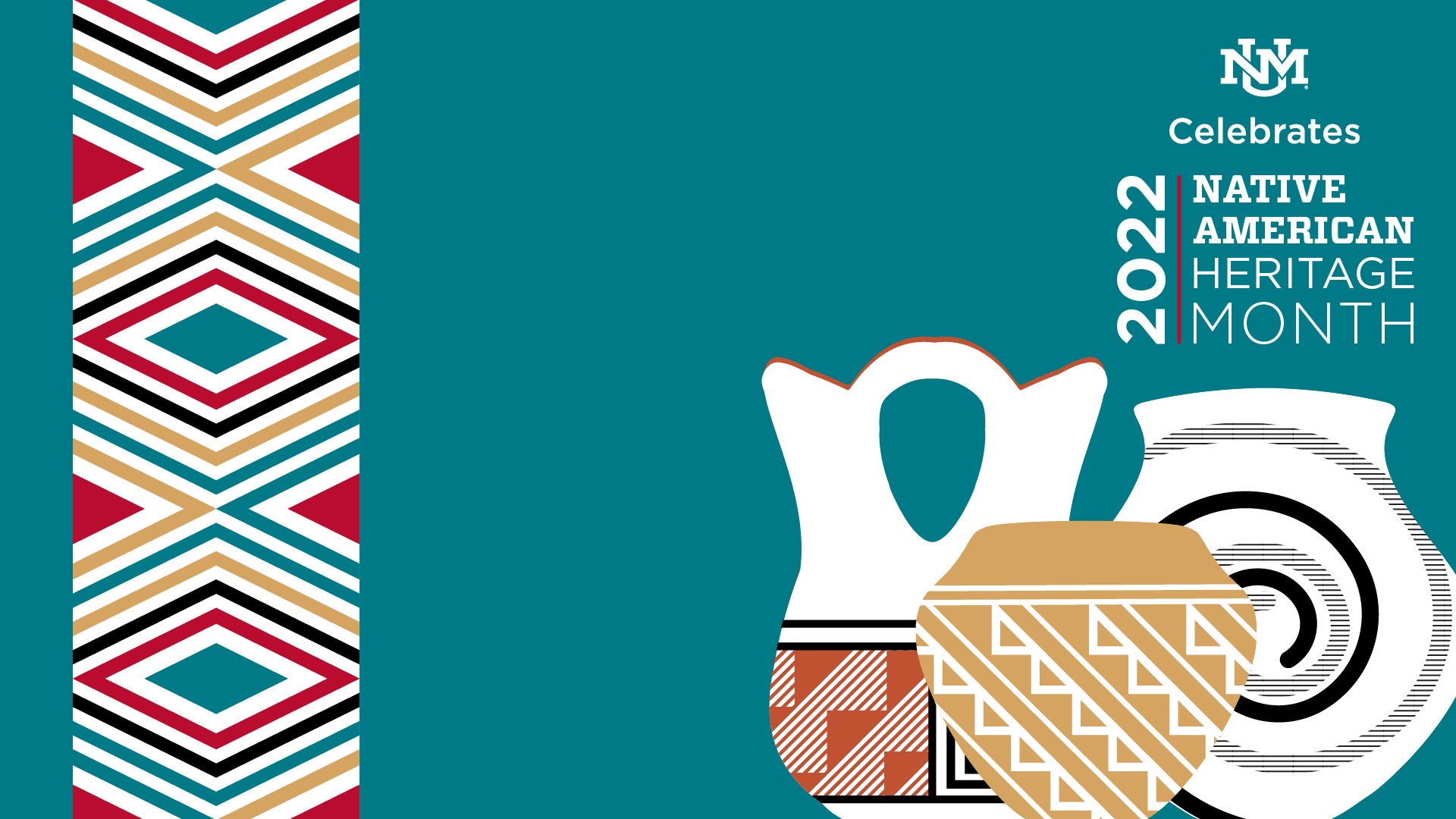Indigenous peoples have inhabited the region now known as New Mexico for thousands of years, and their presence is felt throughout the state. This influence has extended into the present day among New Mexico’s 23 Native American pueblos, tribes and nations.
To celebrate the countless contributions of Indigenous peoples – past and present – and honor their influence on the advancement of the state and the nation, The University of New Mexico Health Sciences Office for Diversity, Equity & Inclusion (OfDEI) is recognizing November as Native American Heritage Month.
To kick off the monthlong celebration, the Fire Oak Dance Group, a dance group from the pueblos of Jemez and Cochiti, will perform from 11 a.m. to noon on Thursday, Nov. 3, at the UNM Hospital’s Barbara and Bill Richardson Pavilion plaza. The group has been sharing and showcasing their Pueblo songs and dances for many years.
Melissa Begay, MD, an assistant professor at the UNM School of Medicine, said it is imperative to recognize the history and contributions Native Americans have made throughout the U.S., as well as raise awareness about the unique challenges Native people have faced, both historically and in the present.

We are remarkably positioned here in the Southwest and especially in New Mexico, which are the ancestral homelands of the Pueblo, Navajo and Apache peoples. The rich culture and traditional knowledge that surrounds our UNM campus affords us a library of these unique and important perspectives
“Native Americans have the lowest life expectancy in the U.S. and continue to be challenged by both social and structural determinants of health,” she said. “We are remarkably positioned here in the Southwest and especially in New Mexico, which are the ancestral homelands of the Pueblo, Navajo and Apache peoples. The rich culture and traditional knowledge that surrounds our UNM campus affords us a library of these unique and important perspectives.”
Begay said there is an urgent call to develop an Indigenous health care workforce in the spaces of academia, tribal communities and national organizations.
“It is essential to develop the next generation of Native American medical students to find creative and sustainable solutions to these challenges and improve these long-standing conditions,” she said.
Discussing this issue further, Begay will lead a presentation Tuesday, Nov. 22, titled “Realizing an Indigenous Health Workforce” along with Alec Calac, an MD candidate at the University of San Diego, from noon to 1 p.m. During the presentation, Begay and Calac will discuss the importance of developing Native American health professional students to be eventual leaders of academic medical centers and describe the need for a Native medical school in the U.S.
On Thursday, Nov. 10, Jason Deen, MD, of the Department of Pediatrics at the University of Washington School of Medicine, will conduct a session titled, “University of Washington School of Medicine’s Indian Health Pathway, a National Model for an Indigenous Health Curriculum,” from noon to 1 p.m.
Then, from noon to 1 p.m. on Tuesday, Nov. 15, Erik Brodt, MD, associate professor of family medicine and director of the Northwest Native American Center of Excellence at the Oregon Health & Science University, will speak during “Development and Impact of the Northwest Native American Center of Excellence.”
All three presentations, which are sponsored by the OfDEI, will be via Zoom and registration information can be found on the OfDEI webpage.
John Paul Sánchez, MD, MPH, OfDEI executive associate vice president, said it’s important to focus on the rich and diverse traditions and historic contributions of Native people throughout November and all year round.
“I'm grateful and honored for national colleagues Dr. Deen, Dr. Brodt, future doctor Calac and Dr. Begay to share an update on promising and best practices to increase and support Native American health professions students,” Sánchez said. “The month is great opportunity to advance work at UNM Health Sciences.”
